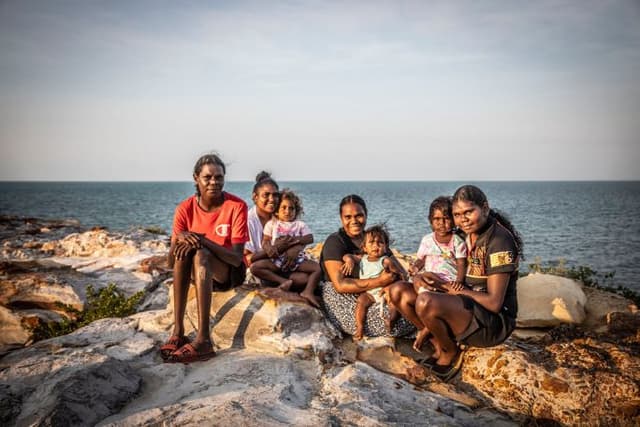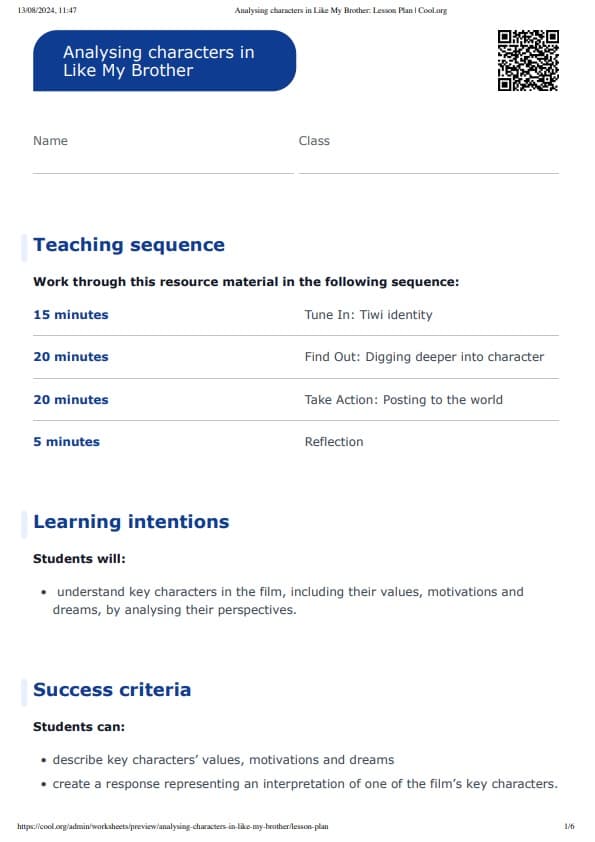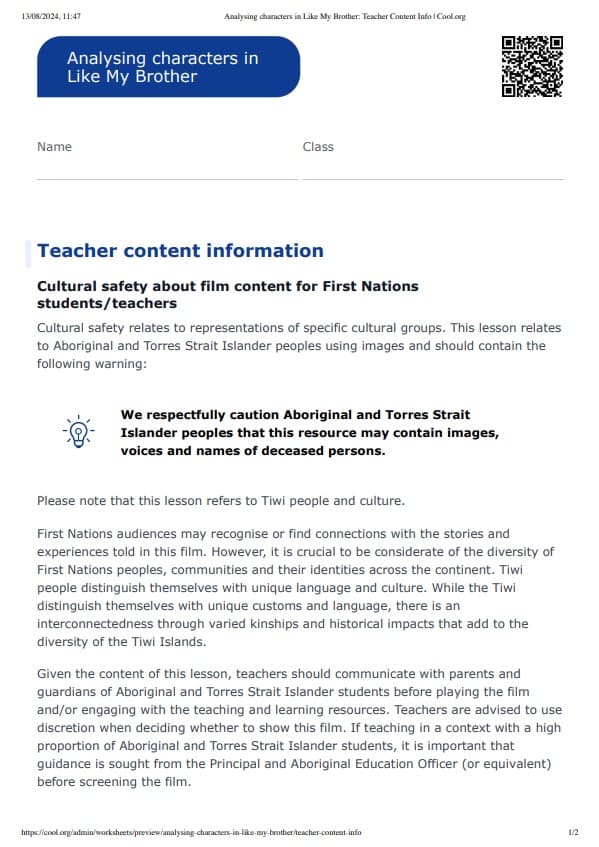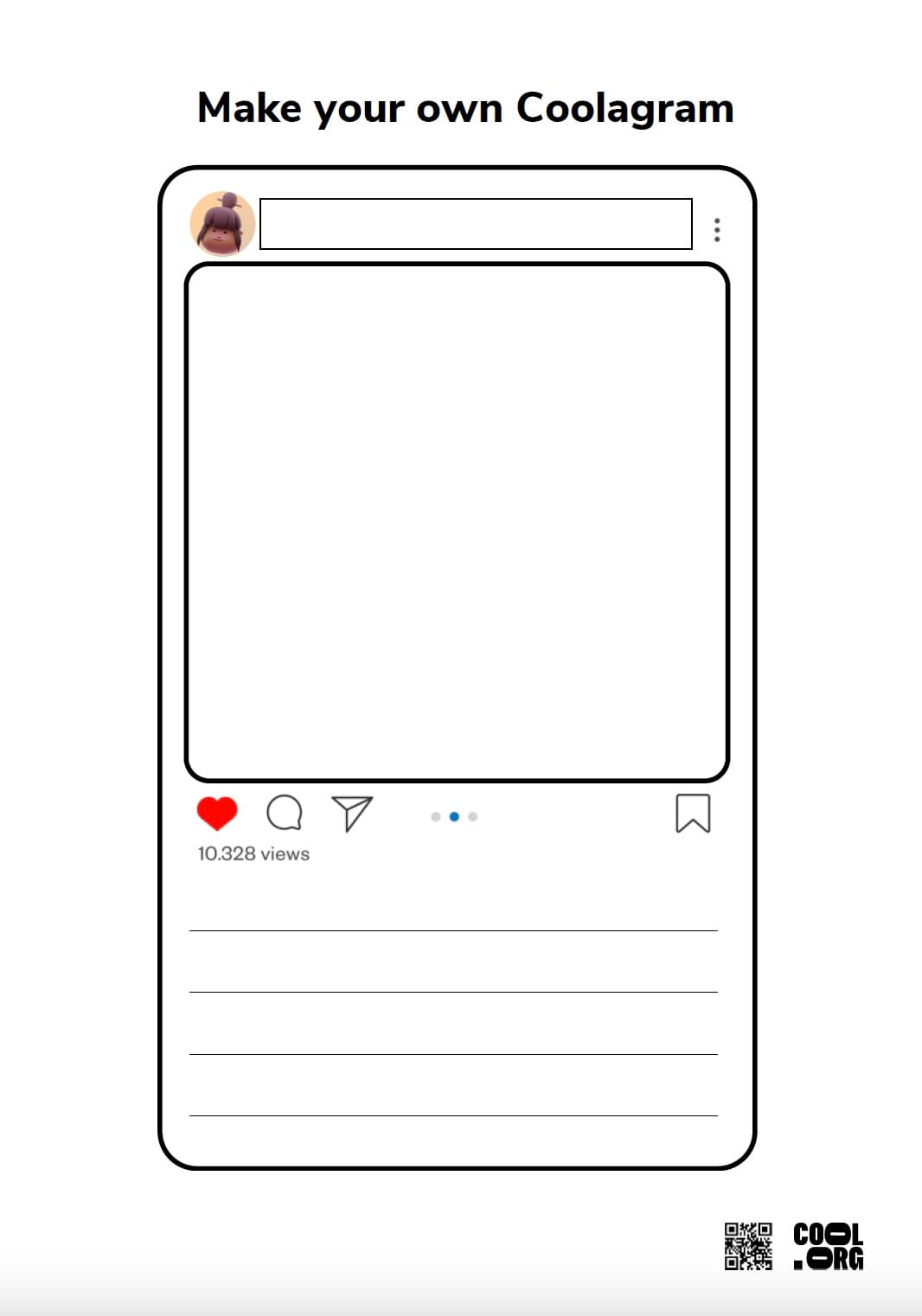Learning intentions:
Students will...
- understand key characters in the film, including their values, motivations and dreams, by analysing their perspectives.
Success criteria:
Students can...
- describe key characters’ values, motivations and dreams
- create a response representing an interpretation of one of the film’s key characters.




